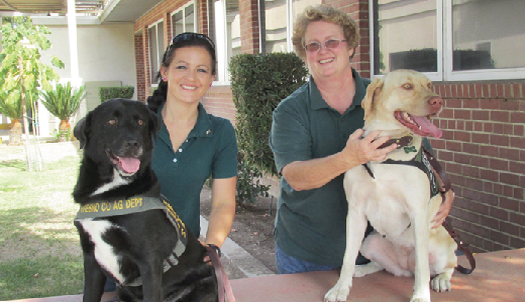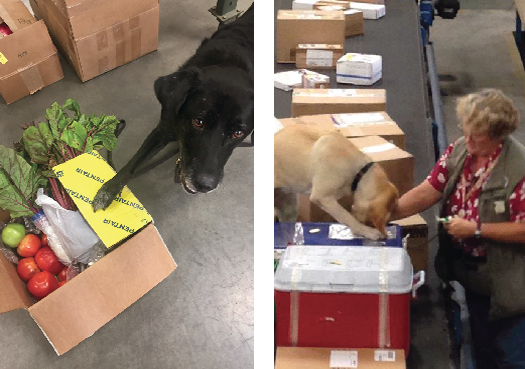Our High-Risk Pest Exclusion staff monitor the pathways where many invasive pests are introduced into the state. Shipments of packages from around the world come into Fresno County through the various ground and air parcel carriers.
Department staff conduct inspections of these packages at parcel carriers such as FedEx and UPS. Department staff enforce agricultural quarantine laws and regulations pertaining to agricultural products. Packages in violation of quarantine laws and regulations, or ones that are found to be infested with pests are subject to destruction, treatment, or being returned to origin. This is how we keep invasive pests out of California and Fresno County.
Invasive pests must be eradicated if they become established in the environment. Eradication efforts are extremely expensive and not always successful. Quarantines that are established by our trading partners significantly reduce our ability to export our produce around the world.
The California Food and Agricultural Code requires specific markings on packages containing plant material. Interstate shipments are required to be marked with the name and address of the shipper or owner; the name of the person to whom the shipment is forwarded or shipped or the name of his or her agent; the name of the country, state, or territory where the contents were grown; and a statement of its contents. Intrastate shipments are required to be marked with the name and address of the shipper or owner; the name of the person to whom the shipment is forwarded or shipped or the name of his or her agent; the name of the county where the contents of the shipment were grown; and a statement of its contents. This is so that inspectors have a visual indicator that a package may need to be inspected and know what is in the package and where it originated.
Secret Weapon Alert
Unmarked packages present a special challenge as there is no indication that the package contains plant material and could harbor an invasive pest. Department staff must use their knowledge and years of experience to detect these packages. The Department also utilizes two canine teams, our secret weapons, to detect plant material in unmarked packages. One of the teams is completely funded by the US Farm Bill. Handler Samantha Tomlinson and canine Soya were required to complete a 10-week training program at the USDA National Detector Dog Training Center in Georgia. The second team, handler Patricia Henke and canine Luna, is funded by pest exclusion programs.
The canine teams greatly enhance our ability to intercept and inspect plant material in unmarked packages. The canines alert on marked and unmarked parcels that contain plant material. A biologist can then inspect the packages that the dogs have alerted on for any unwanted plant pests, and diseases. Finds by our two dog teams have included pest species of ants, scales, and plant pathogens.

Canines Soya and Luna, handled by Samantha Tomlinson and Patty Henke.

Left: Detection of unmarked parcel containing fruits and veggies by canine Soya. Right: Canine Luna working the belt at a parcel terminal.